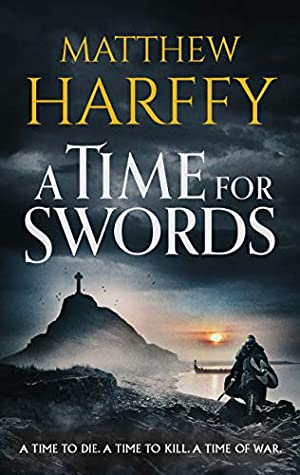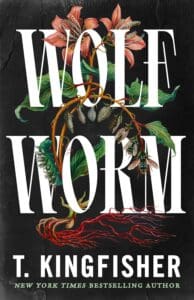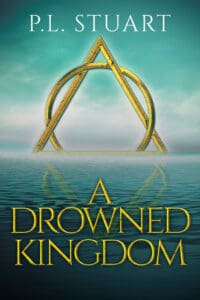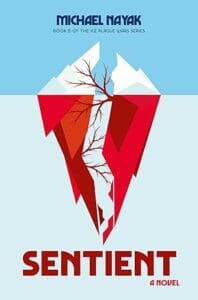Rating: 10/10
Synopsis:
Lindisfarne, AD793. The life of a novice monk will be changed forever when the Vikings attack in a new historical adventure from Matthew Harffy.
There had been portents – famine, whirlwinds, lightning from clear skies, serpents seen flying through the air. But when the raiders came, no one was prepared.
They came from the North, their dragon-prowed longships gliding out of the dawn mist as they descended on the kingdom’s most sacred site.
It is 8th June AD793, and with the pillage of the monastery on Lindisfarne, the Viking Age has begun.
While his fellow monks flee before the Norse onslaught, one young novice stands his ground. He has been taught to turn the other cheek, but faced with the slaughter of his brothers and the pagan desecration of his church, forgiveness is impossible.
Hunlaf soon learns that there is a time for faith and prayer… and there is a time for swords
Review
Thank you to Jade at Aries Fiction, for sending me an ARC to review. All thoughts are my opinion only.
This is an impressive historical debut series that is sure to expand the scope of Anglo-Saxon England from the perspective of an ordinary monk. Pitting at us the very start of the Viking raids of England, you’re launched into what will become an epic journey that is epic from start to finish. The writing in this game was incredible. The first person felt ideally suited and not once, did I lose immersion in this wonderfully written book. What also helped in this immersion, was me playing Assassin Creed Valhalla, which is roughly set in the same time period (Albeit a different start date) but it brings the politics of an increasingly dismembered Anglo-Saxon England that is struggling to respond to the Viking raids, and every King or Queen is using Vikings as mercenaries to basically conquer each other. Divide and rule so to say. But there are also very good hints of The Last Kingdom, which is a fantastic TV show that focuses on Bernard Cornwell’s Uthric of Bebbanbaug. Go watch that on Netflix if you haven’t already.
I am impressed by Matthew’s structure that’s he gone here. It isn’t so much of a spoiler so to say, but we are seeing the reflections of someone that is now settled down, and wishes to tell a glorious tale that’s basically predicting the whole trilogy! We’ll be going to be fabulous enchanted deserts, the marbled columned city of Rome (or by this time, it’s really going into ruins and it’s no longer the city it was during the time of Emperor Constantine). And to the jewel of the east, the marvel of civilization against the backwater kingdoms of Medieval Europe, Constantinople itself. I am also glad that Matthew did this because, after the Norman invasion of England, many Saxons went to serve in the Byzantine’s Varangian Guard and fought against the enemies of the Byzantine Empire. Now, this isn’t 1066 as of yet, but I do imagine Saxons warriors, merchants, traders would have been traveling across Europe for all sorts of reasons. Not many, but some. That’s what really makes me excited about this trilogy.
And we’ll be fighting small-scale battles for the starting opening of this book. This has hints from Akira Kurosawa’s Seven Samurai and a whole lot of Viking TV/media. Perhaps even Assassin Creed Valhalla. It’s a tale of how monks gather to fight against the most fearsome raiders of the European World of this time. The Vikings are brutal, and they want gold and loot. They realize that there’s not much to do in Norway (No grand cities, no grand administration, just squabbling chiefdoms much like the Germanic Tribes centuries ago when they bordered the Roman Empire). It is this specific reason that makes them go to England to loot riches from their monasteries. (Now imagine a novel where the Roman Empire had survived, hadn’t converted to Christianity and had instead kept its pagan religion. That would be a very interesting contrast as to how they would have dealt with the Vikings). That said, I didn’t see that many Roman Ruins as I would have wanted to see.
The characters in this novel are literally all good. I have no words but to say: I loved many of them. Leofstan, Beonna, Hunlaf, and Runolf (He’s such a great Viking! An man honorable of joining Odin’s Hall of Champions) Cormac, Gwawrddur (The epitome of a noble rogue) Drosten (I really didn’t get many scenes from him and that would have been more useful in this regard but I think he could be set up for another part in the series) Hereward (man thinks with his hear than his brain) and Wulfwaru (a clever and resourceful woman that any man would have been lucky to have as his wife!) There are a few I believe I have missed out on. But they were all great. And Hunlaf, well he’s the hero of the story. He’s basically what the precursor is to the Christian Military Orders that would take shape during the Crusades. He’s not exactly the exact precursor, but I can imagine that he’s a foreshadowing of that very essence.
A fantastic debut, with breath-taking writing and impressive worldbuilding. A 10/10 from me.





Leave a Reply